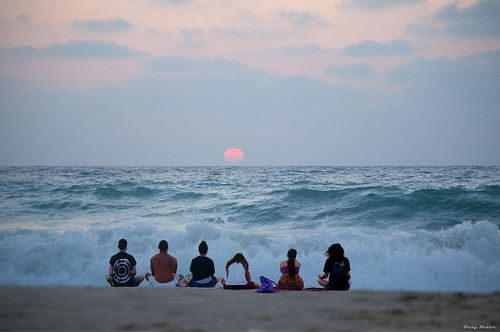 |
| Imagine writing in this environment! |
There are many myths prevalent in academia that make it difficult for many of us to imagine we can be creative, focused, relaxed, and productive. These myths include: “the only way to be successful is to work all the time;” “some people are gifted writers;” “I can only write when I feel inspired;” and “a balanced life is impossible when you are on the tenure track.” These myths are counterproductive and prevent many academics from reaching their full potential.
Instead of believing these myths, I know that anyone can become a great writer by practicing their writing; that you can be successful and have a life too; and that there are specific strategies you can learn that will help you tap into your creativity.
Developing new ideas, which is at the core of academia, requires being creative. Your ability to tap into your creative potential is severely limited when you are frazzled, stressed, and overworked. Thus, although it might seem contradictory, being productive requires setting limits on how much you work.
I am sure you can think of a few writers you admire for their craft. I am also sure that those writers did not just wake up one day with the ability to write. Instead, they developed that skill over many years. The good news is that you can do that too. You can develop the ability to write clearly and convincingly, by practicing and honing your writing skills.
There are many strategies you can learn that will help you to become less stressed, more creative, and more productive. Seven of my favorite strategies include:
You can find ways to incorporate these strategies into your summer writing routine. For example, have you considered writing every morning before connecting to the Internet? Have you tried meditating? Are you using the summer months to catch up on your sleep? Are you enjoying the beach or the mountains this summer? Have you considered taking a walk without your phone in the evenings?
If you would like some help thinking about how to do all of these things, I incorporate all of these strategies into the Creative Connections writing retreat I co-facilitate every year. If you are interested, we have a few spots left for the June 2020 retreat. Participants find that this retreat is the perfect way to refresh and start their summer.
The Creative Connections writing retreat for women academics is based on the idea that there are four elements that lead to enhanced creativity: 1) focused writing time; 2) spending time unplugged and in nature; 3) connections via conversations about our work; and 4) meditation and mindfulness activities that enhance focus and allow us to tap into our creative potential.
This retreat will use a combination of these proven techniques to create a space that not only provides for productivity during this week, but that also teaches participants valuable skills they can use for the remainder of their careers. Producing cutting-edge scholarship requires imaginative and creative abilities and this retreat is designed to maximize creativity and productivity.
The retreat is already 50% full. If you are interested, apply today to secure your spot.
Whether or not you are able to join I wish you a creative, productive, and relaxed rest of your summer and look forward to hearing in the comments the ways you use to tap into your creativity.




